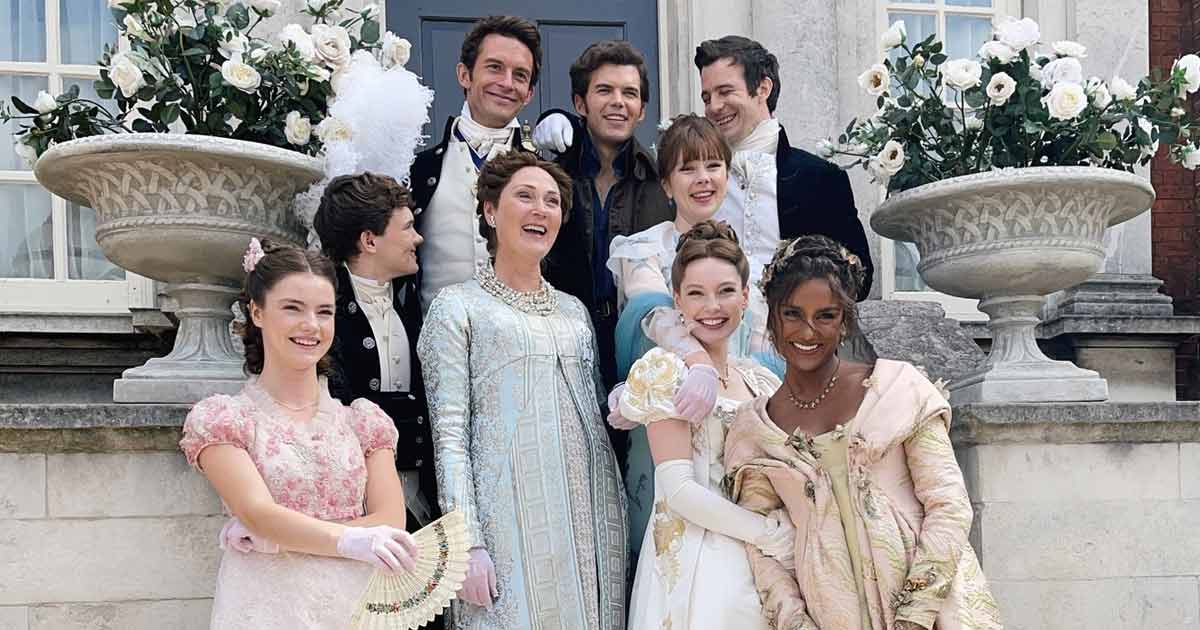On Valentine’s Day, Bradley Cooper strode onto the stage of Lincoln Center’s David Geffen Hall, flush with exuberance in his tux. “What we’re going to watch is an experiment,” he told the audience, which included Candice Bergen, Spike Lee, and Ellen Burstyn. Out came Yannick Nézet-Séguin—Cooper’s conducting consultant for “Maestro,” his Oscar-nominated bio-pic of Leonard Bernstein—who led the New York Philharmonic in lush musical selections from the film, sprinkled with audio and video clips. The evening, “Orchestrating Maestro: Music and Conversation,” was presented by a curious pair: the Philharmonic and Netflix. Cooper returned for the conversation, alongside Nézet-Séguin and Carey Mulligan, his co-star and fellow Oscar nominee. “It’s hard to get my head around, honestly,” Cooper gushed, of the orchestra. “I was, like, scared to even talk to them years ago. They were, like, ‘What is this guy doing here? Are you going to do a movie about Leonard Bernstein? O.K., you’re going to come, like, once.’ ‘No, I’ll be here, like, five times a week for four years.’ ”
Why was this happening? One reason is that the New York Philharmonic was making Cooper’s musical dreams come true. But the real reason is that we’re at peak Oscar season, with final voting ending on Tuesday. Now is the “Look at me! Look at me!” hour, and nothing is accidental. It’s why you are seeing Cooper on the cover of the Times Magazine, submerging himself in a freezing creek. It’s why you are seeing Cillian Murphy, of “Oppenheimer,” dressed like a salsa dancer on the cover of GQ, or Ryan Gosling, of “Barbie,” climbing to the top of the Warner Bros. water tower. It’s why you are seeing Messi, the Border collie from “Anatomy of a Fall,” turning heads at the Oscar Nominees Luncheon. Yes, even the dog is doing press! According to Variety, Messi trained for two months to master the art of playing dead. Like Cooper, he’s an immersive actor.
To campaign for an Oscar, as for the Presidency, you need a narrative—some compelling story, decided on by a combination of the nominee, campaign strategists, and the media, that gives voters a warm, happy, check-the-box feeling. Underdog stories often work. Last year, “Everything Everywhere All at Once” was the Little Movie That Could. Its leading lady, Michelle Yeoh, was the Seasoned Star Who Has Never Got Her Due. Her co-star Ke Huy Quan was the Former Child Actor Making an Emotional Return. And their castmate Jamie Lee Curtis was Hollywood Royalty Who Will Not Cower at Being Called a Nepo Baby. They all won Oscars, as did Brendan Fraser, for “The Whale,” in the role of the Former Heartthrob Who Was Wronged by the Industry and Is Making a Comeback in a Courageously Unglamorous Fat Suit. (He beat Austin Butler, as the Guy Who Is So Committed to Playing Elvis That He Can’t Stop Talking Like Elvis.)
This year’s narratives have already been honed for months. Christopher Nolan, the director of “Oppenheimer,” is the Filmmaker’s Filmmaker. Martin Scorsese, who directed “Killers of the Flower Moon,” is the Living Soul of Cinema Who Is Also Fun on TikTok. Robert Downey, Jr. (“Oppenheimer”), is the Guy Who Made a Lot of People in Hollywood a Lot of Money and Is Now Doing Something Serious While Reminding Us That He Is Superhumanly Charming. Annette Bening (“Nyad”) is the Hardworking Veteran Who Has Somehow Never Won. (Netflix’s tagline: “A Career Worth Celebrating.”) Like her character, Diana Nyad, Bening is being positioned as an endurance artist, someone who has persevered through decades of show business. Also, did you hear that she swam up to eight hours a day in preparation?
If dedication, often in the form of hours logged or special skills mastered, is a key ingredient, so is authenticity. You have likely heard about how Cooper consulted with the children of Bernstein, or how Scorsese consulted with the Osage Nation, or how America Ferrera wrote part of her “Barbie” monologue herself. Even Diane Warren, who received her fifteenth nomination for Best Original Song, said that “The Fire Inside,” her anthem from “Flamin’ Hot”—a movie about the creation of Flamin’ Hot Cheetos—is “my anthem too.” If I sound cynical, let me be clear that it’s often fascinating to hear about the filmmaking process, and as an entertainment journalist I’m often eliciting stories like these. Part of the point of awards season is taking the time to appreciate the cinematic crafts, whether it’s the sound design of “The Zone of Interest” or the various Jewish noses affixed to Gentile actors.
But there are hazards. To paraphrase Ferrera’s “Barbie” speech, Oscar campaigning is a paradox: you have to be extraordinary, but, even if you’re on-message and game, you can somehow leave the impression that you’re doing it wrong. Fairly or not, Cooper has been pegged as this year’s Try-Hard Who Wants an Oscar So Badly That We Should Probably Just Give Him One to Prevent a Psychotic Break. In Vulture, Nate Jones observed that “Maestro” has become this year’s “Oscar Villain”—the movie that you start to root against as it glides toward glory. “To those who haven’t seen it,” Jones wrote, “Maestro is a movie about how Cooper spent untold amounts of time and money transforming himself into a very important conductor, in a movie about how this conductor was very important.” That whiff of trophy hunger hasn’t attached itself to Murphy or Bening, probably because Cooper cast himself as a complicated American luminary, and because we went through a high-profile Oscar cycle with him recently, for “A Star Is Born.”
But there’s also that heart-on-your-sleeve earnestness, the kind that often gets yoked to the dreaded phrase “theatre-kid energy.” It happened to Anne Hathaway, who won Best Supporting Actress, in 2013, for “Les Misérables.” Hathaway seemed to irk so many people along her march to victory that her supposed unlikability became a subject of awards-season discourse. A decade later, the consensus is that she was done dirty. (Hathaway’s teary, much-memed reaction to Barbra Streisand’s Life Achievement speech at this past weekend’s SAG Awards was a good reminder that, oh, right, some actors just have a lot of feelings, and that’s O.K.) I don’t envy celebrities who have to walk this tightrope: enthuse about your project for months on end to a willing press, but not too much that you evince any thirst for Oscar gold.
A related pitfall to “wanting it too much” is “campaigning too hard.” This dates back. In 1961, John Wayne’s “The Alamo” received seven nominations, including Best Supporting Actor, for its comic sidekick, Chill Wills. Seizing the moment, Wills hired a press agent, W. S. (Bow-Wow) Wojciechowicz, who placed ads listing Academy members’ names in alphabetical order next to a picture of Wills and a note saying, “Win, lose or draw, you’re all my cousins and I love you all.” (Groucho Marx’s reply: “Dear Mr. Chill Wills, I am delighted to be your cousin, but I voted for Sal Mineo.”) Another ad featured a phony and extremely tactless endorsement from his castmates: “We of the Alamo cast are praying harder—than the real Texans prayed for their lives in the Alamo—for Chill Wills to win the Oscar.”
The aghast Wayne disavowed this “untrue and reprehensible claim.” Wills turned on his overeager publicist, fuming to the columnist Sheilah Graham, “I always had a very reputable name in this town. One day I’ll get even with that so-and-so if it’s the last thing I do.” (He lost to Peter Ustinov, of “Spartacus.”) But sometimes the brazenness pays off. In 2011, Melissa Leo, who was nominated for Best Supporting Actress, for “The Fighter,” shot her own glammed-up “For Your Consideration” ads and placed them in the trades. Accused of “going rogue,” she explained that she’d been frustrated with her lack of magazine covers, which she attributed to ageism, and declared, “I took matters into my own hands.” She won.
So how do you campaign without seeming gauche? One way is to foreground your obsessive commitment to the role—but even that can strike a false note. Lady Gaga cast herself as the ultimate immersion artist to promote her performances in “A Star Is Born” (“I feel Ally inside of me”) and “House of Gucci” (“I lived as her for a year and a half. And I spoke with an accent for nine months of that”). She was nominated for the former but not the latter, the perception being that her well-publicized dedication was an act. In other words, she was so authentic as to be inauthentic—because what she really wanted, the public surmised, was a notch on her EGOT belt. Of course, many actors do research their roles deeply, and they do lose themselves in a character. But the Oscar-time grind of bottling the process into a narrative has a way of turning sincerity into a stump speech.
The blurry line between an actor’s quest for authenticity and an actor’s quest for glory calls to mind one of this season’s underpraised performances: that of Natalie Portman, in Todd Haynes’s “May December.” Her character, a mid-tier TV actress named Elizabeth, is starring in a movie about a real-life tabloid scandal, and in preparation she visits the woman she is playing, Gracie (Julianne Moore). “I want you to feel seen and known,” she tells Gracie upon arriving at her house for a barbecue. But what is Elizabeth really after? No doubt a familiar flicker passes through her mind: this will be a great anecdote for my Oscar campaign. One can imagine Elizabeth dragging the real Gracie to the Golden Globes as her plus-one, much as Margot Robbie did with Tonya Harding when she was nominated for “I, Tonya.” (Portman herself is no stranger to try-hard campaigning; perhaps you read about how she studied recordings of Jackie Kennedy for “Jackie,” or took ballet lessons for “Black Swan.”) Maybe Haynes’s strain of cynicism about actorly self-regard was too on the mark. Aside from a screenplay nomination, “May December” struck out at this year’s Oscar nominations. ♦







